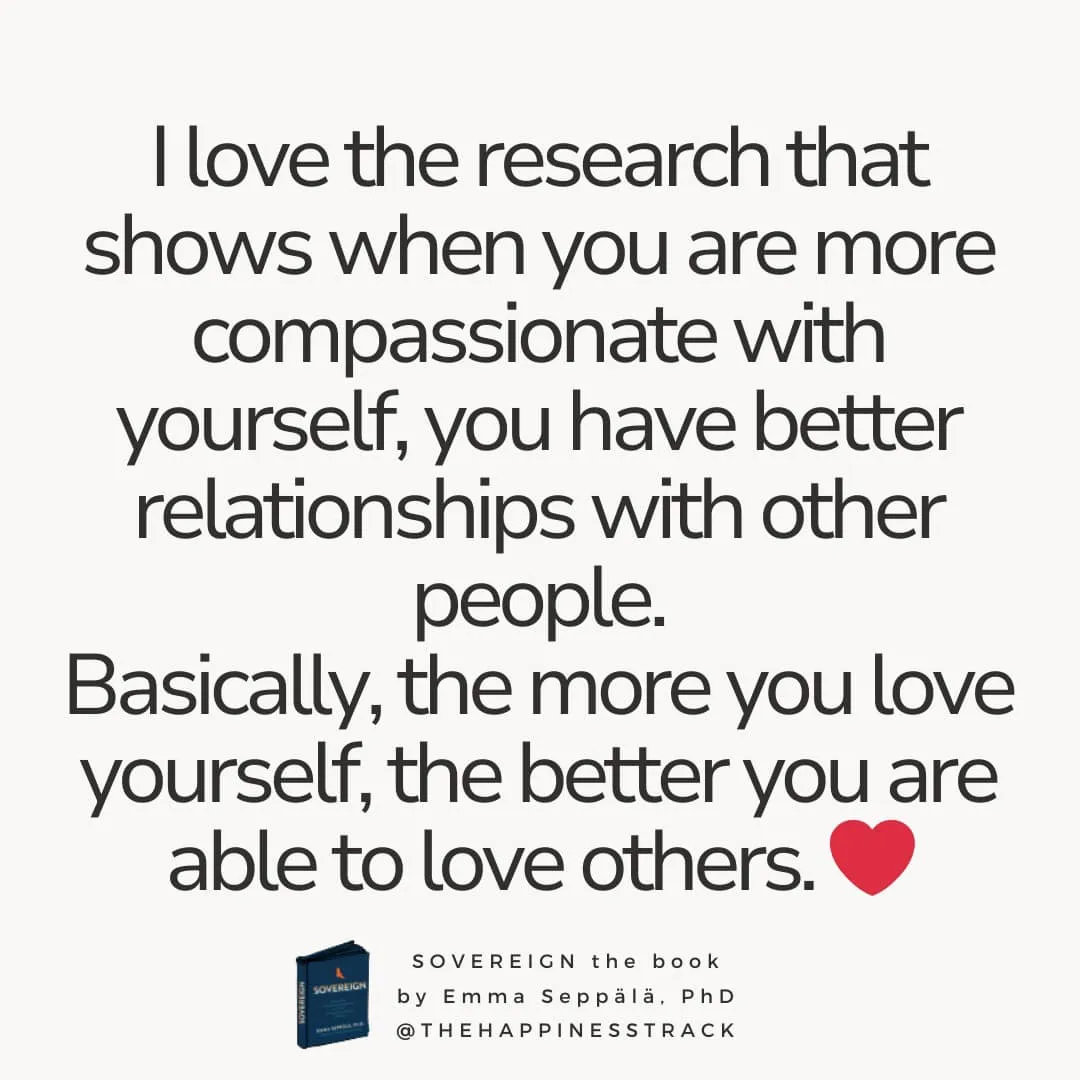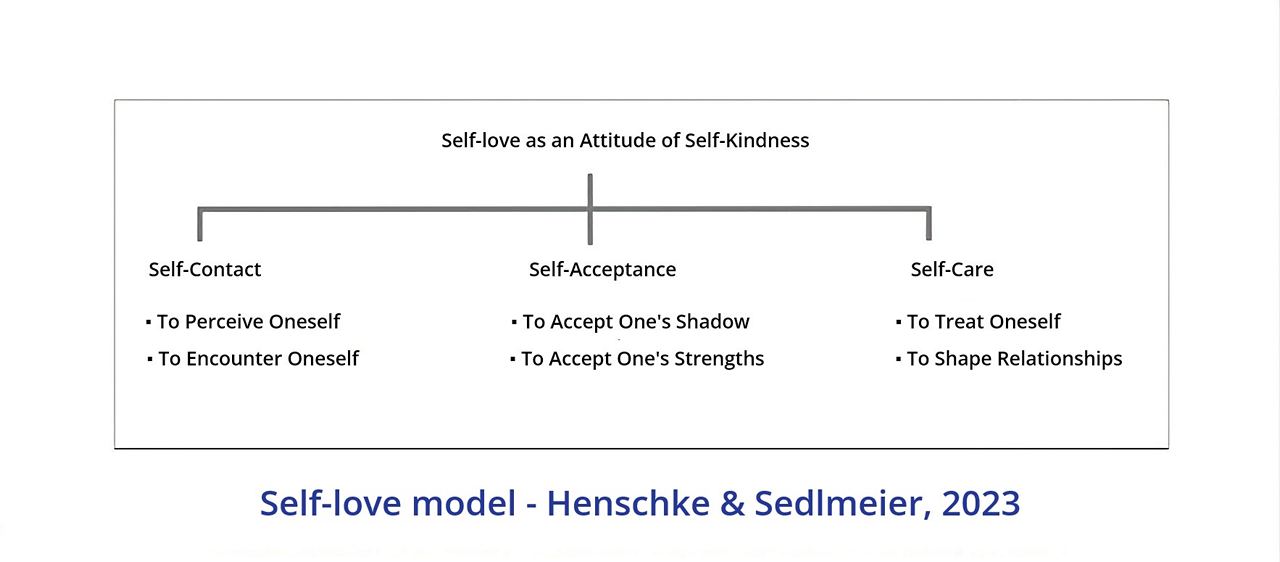Today's Sunday • 9 mins read
“The river that dies kills all its fish.”
Self-love is the water in that river. The fish are your relationships, dreams, and emotional health. Without self-love, they cannot survive.
Another way to say self-love comes first:
“Put on your oxygen mask before helping others.”
If a plane loses cabin pressure, oxygen levels drop quickly. Without a mask, you’d lose clarity and alertness in seconds. That’s why the instruction is always the same: secure your mask first.
Life works the same way. When you take care of yourself, you’re able to support others with strength and presence. Research in psychology backs this up.
Self-Love: How To Love Yourself First Without Feeling Guilty
Here is how you can start loving yourself without feeling guilty:
1. Give yourself unconditional self-acceptance.
Unconditional self-acceptance is the foundation of self-love.
The challenge is that many of us were raised with conditional acceptance. Parents, teachers, or peers, often with good intentions, taught us that we were worthy only when we met certain standards.
Over time, this voice turns inward as self-criticism and, eventually, self-rejection.
The mindshift begins when you remind yourself that you are as deserving of your own love as anyone else. Flaws included.
Everyone stumbles, makes mistakes, and struggles. These are part of being human. That doesn’t mean you can’t love yourself.

Unconditional self-acceptance means embracing yourself as a whole: the good, the bad, and the imperfect.
- It’s not about covering up mistakes, taking pride in shortcomings, or ignoring accountability.
- It’s not about grudging tolerance of yourself or constant self-judgment.
- And it’s not about attaching conditions to your worth.
Mindfulness practices, such as noticing self-critical thoughts without judging yourself, can help grow your self-acceptance.
“If you love yourself, you love everybody else as you do yourself. As long as you love another person less than you love yourself, you will not really succeed in loving yourself.”
— The Art of Loving, Eric Fromm

2. Stop trying to do things perfectly.
Perfectionism is an insidious enemy of self-love.
When you have the constant urge to be flawless, the pressure to perform without mistakes, and the fear of how others will judge you, you push yourself away.
At its core, perfectionism is rooted in insecurity. You are afraid that you won’t be able to live up to your own unrealistic standards or the standards you think other people have for you.
Perfectionism often also leads to a procrastination habit, because you’d rather not start than risk getting it “wrong.”
Then there’s also a darker side to it. Research links perfectionism to anxiety, depression, insomnia, and obsessive-compulsive tendencies.
Give yourself this reality check when your perfectionism kicks in:
“Am I trying to catch a rainbow?”
Perfection is like trying to catch a rainbow—beautiful from a distance, but impossible to get your hands on.
What to do instead:
- Acknowledge your effort and hard work.
- Remind yourself, “This is good enough.”
- Move forward instead of getting stuck.
Just like the Japanese fix broken pottery with gold, remind yourself that you are beautiful with your flaws. You are learning and growing through your mistakes.
3. Treat yourself with kindness and compassion.
Self-compassion means treating yourself with the same kindness, understanding, and support that you would offer to a close friend in times of struggle or difficulty.
It involves acknowledging your own suffering with empathy and warmth, rather than harsh self-criticism, and recognizing that imperfection is a natural part of the human experience.
In difficult times, change that self-chiding voice to one of self-compassion: “You are worthy of love and empathy, just as you are.”
Negative emotions like guilt and anger are normal when you fail, but don’t let them control your life.
Here’s a life hack: Be as good to yourself as you are to your best friend.
When you trip or tumble, treat yourself with the same kindness, empathy, and compassion that you’d show a friend who just had their world turned upside down.
And there’s a beautiful upshot to this:
Self-compassionate people are more optimistic, more satisfied, and more resilient to adversities. They also score high on emotional intelligence and wisdom.
Nurturing self-compassion also creates a ripple effect. As you become kinder to yourself, you’ll notice that you also grow more understanding and patient with others.
“The kindest thing you can do for the world is to be kind to yourself first.”
4. Stop comparing yourself to others.
Everyone on social media seems to show off a life that they don’t actually have. Let that sink in.
They post the best highlights of their life, which you end up comparing to your daily humdrum routine.
Social comparisons often breed resentment towards yourself and others. They make you less happy and less loved by yourself.
Stop comparing yourself with others. Do not lose your peace over what they are socially flaunting. Their lives may have a different set of problems that they keep hidden.
As Ted Roosevelt said, “Comparison is the thief of joy.”
When you stop comparing yourself to others, you can love who you are without feeling guilty.
A better game plan: Run your own race at your own pace.
5. Start talking as if you already love yourself.
Self-love grows through the words you use with yourself.
But don’t fall into the trap of thinking, “If I don’t love myself, no one else will.” That only adds pressure and can turn into toxic positivity.
It’s possible to care for others even when your self-love feels shaky. The danger is believing that a lack of self-love makes you unworthy of love from others. That belief feeds guilt and shame.
Affirmations can help rewire your inner self-critical dialogue. Choose one that feels honest and helpful, or try these:
- “I am enough, exactly as I am.”
- “I choose to prioritize my happiness and well-being.”
- “I am deserving of love and acceptance, just as I am.”
- “I trust myself to make choices that align with my values.”
- “Humans make mistakes. It’s okay for me to make them too.”
- “I can sit with my feelings with the same kindness I’d give a friend.”
- “I care about myself, and that doesn’t take away from how I care for others.”
You don’t need to repeat all of them every day. Pick one or two and set them as reminders on your phone. A gentle buzz at different times can nudge you back toward self-compassion.
5 Benefits of Loving Yourself
- Self-love lets you be your authentic self in relationships. You can love them and yet set boundaries on their behaviors you won’t tolerate. Self-love keeps you safe from people who try to control you through charm, guilt, or abuse.
- Being self-loving lets you care about other people’s needs without forgetting about your own. You are neither narcissistic nor people-pleasing. This balance lets you be happier and less stressed.
- When you love yourself, you can accept your flaws while staying open to feedback and learning from your mistakes. You can maintain your self-worth without depending on others’ opinions.
- Self-love inspires self-care. When you value yourself, you work hard to build healthier habits and avoid doing things that are bad for your health and happiness.
- Self-love is a learnable skill. You can learn to love yourself with practices like self-compassion, mindfulness, and boundary-setting.
Research Findings on Self-Love
Henschke & Sedlmeier (2023) developed a model of self-love with three core components:
- Self-contact – paying attention to yourself and being aware of your inner state.
- Self-acceptance – being at peace with who you are, including your flaws.
- Self-care – protecting and caring for yourself in healthy ways.

Some other findings on self-love:
- Self-acceptance is a core component of self-love. This entails an acceptance of all aspects of the self, including the suppressed parts (Orbanic, 2001; Solimar, 1987; Vadjed Samiei, 2015).
- Self-compassion, a core component of self-love, improves emotion regulation and reduces negative mood (Neff, 2003; Inwood & Ferrari, 2018).
- Self-compassionate couples are more caring, less controlling, and have greater satisfaction (Neff & Beretvas, 2013). Since self-love includes self-compassion, it suggests that self-love promotes healthier romantic relationships.
- Self-love is seen as a crucial resilience factor in preventing psychological diseases (Schrader, 2016) and emotional imbalances (Solimar, 1987).
- Lacking self-love can cause depression and anxiety, as well as inauthenticity and guilt (Irvani, 2007; Solimar, 1987). Further, self-love is described as having a healing impact (Irvani, 2007; Orbanic, 2001).
- In terms of aging, self-love is a necessary and essential resource when one is faced with lessening functionality and loss (Schrader, 2016).
- Self-love is a learnable skill. It can be cultivated through practices such as mindfulness, reflective exercises, and therapeutic interventions (Henschke & Sedlmeier, 2023).
Why Is It So Hard to Love Yourself First?
Self-love may be hard for many of us because of a cultural stigma: that loving yourself makes you selfish or narcissistic.
That cultural conditioning, “Don’t be selfish,” may be why many of us feel guilty when we treat ourselves well. Over time, that guilt may grow into toxic shame.
It may lead you to:
- Treating yourself as your friend.
- Struggle to forgive your mistakes.
- Lose empathy for your own struggles.
- Obsess over flaws instead of appreciating your efforts.
- Criticize yourself more harshly than anyone else would.
Self-love means asserting that you deserve love, kindness, and respect just as much as anyone else. It’s a decision not to push back your needs.
Further Reading:
- Does self-love lead to love for others?
- Philosophical Reflections on Self-Worth and Self-Love
- What is self-love? Redefinition of a controversial construct.
- Shamed into Self-Love: Dynamics, Roots, and Functions of Narcissism
- The Gifts of Imperfection. Brené Brown argues eloquently that loving ourselves is as important as all other ingredients of an emotionally healthy life.
Final Words
It’s a tragedy of our time that many of us don’t know how to mend our relationship with our inner selves.
So, start today. Sit with yourself, and listen closely to the messages in your emotions.
- Your self-anger may be telling you that you’ve silenced your own needs to please others.
- Your self-denial may be telling you that you’ve been measuring your worth only by productivity.
That’s where self-love begins.
So, love yourself first because the river that dies kills all of its fish.
√ Also Read: Decoding Signs That A Fearful Avoidant Loves You
√ Please share it if you found this helpful.
» You deserve happiness! Choosing therapy could be your best decision.
...
• Disclosure: Buying via our links earns us a small commission.
